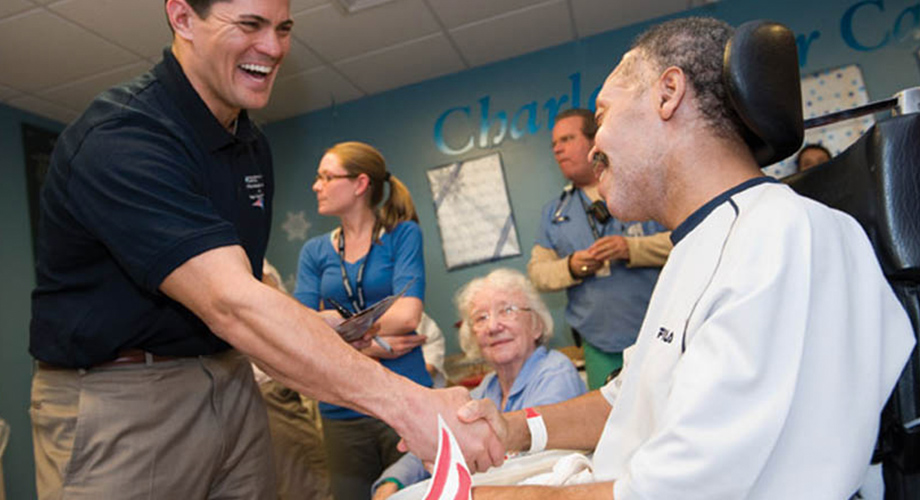Header Skipped.
Neurological Rehabilitation
Neurological Rehabilitation is a program focusing on the recovery of disease, disorders, or injuries of the nervous system, including the brain, spinal cord, and nerves. At Spaulding Outpatient Center in Boston, we help diagnose, treat, and rehabilitate your unique situation, whether it be a neurological condition from birth or complications due to trauma like a car accident.
If you or a loved one is facing a neurological disorder diagnosis, we understand the complex physical, emotional, and psychological challenges that you may be facing. At Spaulding, we work with you and your loved ones to build a comprehensive and individualized treatment plan to address your needs and concerns.
Levels Of Care for Neurological Rehabilitation
With a combination of highly-trained clinicians and the most advanced rehabilitation treatments and research available, we’re here to make a difference in your life and help pave the road to wellness.
-
Hospital Rehab
-
Outpatient
-
Skilled Nursing
Spaulding's Approach to Neurological Rehabilitation
Our specialized team of neurologists, physicians and therapists will evaluate your condition with focus on strength, flexibility, muscle tone, movement patterns, balance, and functional mobility. We’ll identify areas for improvement and develop a targeted treatment plan to facilitate success in reaching your goals.
Who We Are
As an international leader in rehabilitative care, we provide treatment for children and adults diagnosed with a range of neurological disorders including stroke, traumatic brain injury including concussion, vestibular dysfunction spinal cord injury, Cerebral Palsy, Parkinson’s Disease, Muscular Dystrophy, and more.
Your care team will consist of highly trained clinicians from various disciplines. Depending upon your needs, you may work with a variety of specialists, including physical therapy, occupational therapy, speech therapy, neurology, physiatry, and psychiatry.
What do we treat?
- ALS/Lou Gehrig’s disease
- Alzheimer's disease
- Balance disorders
- Cerebral Palsy
- Guillain-Barre syndrome
- Multiple Sclerosis
- Muscular dystrophy
- Myasthenia Gravis
- Parkinson’s disease
- Spinal Cord Injury
- Stroke
- Traumatic brain injuries including concussion
- Vestibular Dysfunction
How do we treat?
Our therapists use a variety of therapy techniques, equipment, and modalities including:
- Therapeutic exercise
- Balance activities
- Gait training with use of assistive equipment/devices
- Splinting, bracing and the use of specialized therapy equipment
- Neurological re-education of movement patterns and functional activities
- Adaptive sports and recreation
- Compensatory techniques and strategies
- Specialized rehabilitation services, such as driving assessments and vision therapy
- Speech, language and swallowing therapies and cognitive therapy
- Wheelchair services and seating assessments
Locations
Outpatient
Hospital Rehab Facilities
Long-Term Acute Facilities
Stories of Strength
View more Patient Stories


